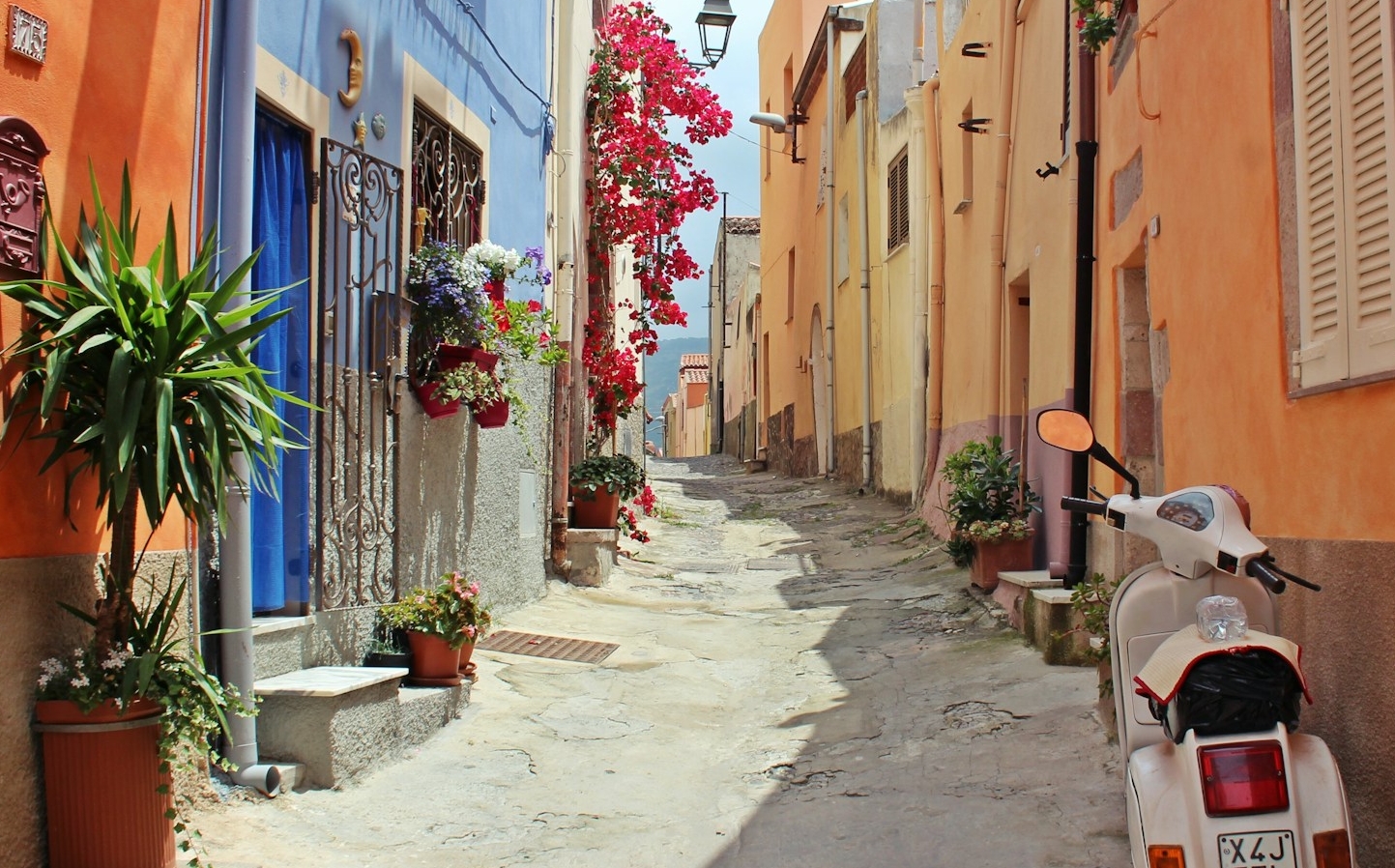
Italy's allure extends beyond its picturesque landscapes and rich cultural heritage; it's also a popular destination for those seeking to rent properties. Whether you're drawn to the bustling streets of Rome, the romantic canals of Venice, or the tranquil countryside of Tuscany, Italy offers a diverse range of rental options to suit various preferences and lifestyles.
Exploring the Different Types of Rental Properties in Italy
When it comes to renting property in Italy, tenants have the choice between unfurnished, partially furnished, and fully furnished accommodations. Each type of rental property comes with its own set of advantages and considerations, catering to the needs of different renters.
Unfurnished Rental Properties:Unfurnished rental properties in Italy are typically devoid of furniture and appliances, offering tenants a blank canvas to personalize their living space according to their taste and needs. These properties are ideal for individuals or families who already own furniture or prefer to select their furnishings to create a home that reflects their style. Unfurnished rentals often provide the flexibility to decorate and design the interior spaces according to the tenant's preferences, making them a popular choice for long-term residents or those who value customization.One of the primary advantages of unfurnished rental properties is the lower monthly rent compared to furnished alternatives. Since landlords are not responsible for providing furnishings, the rental costs are generally more affordable, allowing tenants to allocate their budget towards other expenses or savings. Additionally, unfurnished rentals offer greater freedom in terms of lease duration, with many landlords open to longer-term agreements, providing tenants with stability and security in their housing arrangements.However, tenants opting for unfurnished rentals should be prepared to invest in furniture, appliances, and other essentials, which can entail additional upfront costs. Additionally, maintaining and transporting furniture during relocation may pose challenges for tenants who frequently move or relocate.
Partially Furnished Rental Properties:Partially furnished rental properties in Italy strike a balance between the freedom of an unfurnished space and the convenience of a fully furnished one. These properties typically include essential furnishings such as beds, sofas, tables, and some appliances, providing tenants with the basics needed for comfortable living. Partially furnished rentals are well-suited for individuals or families who desire a degree of convenience without sacrificing the opportunity to add personal touches to their living space.The appeal of partially furnished properties lies in their ability to offer tenants a head start in furnishing their home while still allowing room for customization. Tenants can supplement the existing furnishings with their pieces to create a space that meets their specific requirements and aesthetic preferences. Partially furnished rentals are particularly popular among expatriates, students, or individuals relocating temporarily, as they provide a convenient housing solution without the burden of fully outfitting a property.While partially furnished rentals offer a middle ground between unfurnished and fully furnished properties, tenants should carefully review the inventory provided by the landlord to ensure that it meets their needs. Additionally, tenants may need to negotiate terms regarding the addition or removal of furnishings to align with their preferences and lifestyle.
Fully Furnished Rental Properties:Fully furnished rental properties in Italy come fully equipped with furniture, appliances, and often include amenities such as kitchenware, linens, and electronics. These turnkey accommodations offer tenants a hassle-free living experience, making them an attractive option for those seeking convenience and comfort without the logistical challenges of furnishing a property.Fully furnished rentals are well-suited for short-term stays, vacation rentals, or individuals who prioritize convenience and prefer to avoid the expenses and effort associated with furnishing a property. These properties are particularly popular among tourists, business travelers, and expatriates who require immediate accommodation without the need for extensive setup or investment in furniture.One of the primary advantages of fully furnished rentals is the convenience they offer, allowing tenants to move in with minimal luggage and immediately settle into their new home. Additionally, fully furnished properties often include utilities and other services in the rental package, streamlining the rental process and providing tenants with a comprehensive housing solution.However, tenants should expect to pay a premium for the convenience and amenities provided by fully furnished rentals, as they typically command higher monthly rents compared to unfurnished or partially furnished properties. Additionally, tenants should conduct a thorough inspection of the furnishings and appliances upon move-in to ensure they are in good condition and meet their expectations.

Understanding the Costs of Renting a Property in Italy
Renting a property in Italy involves more than just the monthly rental price; tenants should be aware of various costs associated with securing and maintaining their accommodation. From initial deposits to ongoing utility bills, understanding these expenses is essential for budgeting and planning. Here's a breakdown of the costs you may encounter when renting a property in Italy:
- Security Deposit:Upon signing a lease agreement, tenants in Italy are typically required to pay a security deposit, known as "cauzione." This deposit serves as a form of financial security for the landlord and is intended to cover any damages to the property or unpaid rent at the end of the tenancy. The security deposit is usually equivalent to one to three months' rent, although this can vary depending on the landlord or agency.
- Agency/Administration Fees:In Italy, tenants may also incur agency or administration fees when renting a property, especially if they use the services of a real estate agency or agent to find their accommodation. These fees, known as "provvigione" or "spese di agenzia," typically amount to one month's rent or a percentage of the annual rent. It's essential to clarify with the agency or landlord whether these fees apply and what services they cover.
- Monthly Rental Price:
- The monthly rental price is the most significant ongoing cost associated with renting a property in Italy. Rental prices can vary significantly depending on factors such as location, size, condition, and amenities of the property. In major cities like Rome, Milan, or Florence, rental prices tend to be higher compared to smaller towns or rural areas. It's essential to carefully consider your budget and priorities when searching for rental accommodation.
Utility Bills:
In addition to the monthly rent, tenants are responsible for paying utility bills associated with their rental property. These may include:
- Water: Water bills in Italy are typically calculated based on consumption and vary depending on the region and the number of occupants in the property.
- Gas: Gas bills cover the cost of heating and cooking and are charged based on consumption. Prices may fluctuate seasonally, with higher usage during colder months.
- Electricity: Electricity bills cover the cost of powering appliances, lighting, and other electrical devices in the property. Like water and gas, electricity bills are typically based on consumption and can vary throughout the year.
- Spese Condominiali (Condominium Fees): If the rental property is part of a condominium or apartment complex, tenants may be required to pay monthly condominium fees. These fees contribute to the maintenance and upkeep of shared areas, such as stairwells, elevators, and gardens, as well as services like cleaning and security.
It's essential for tenants to factor in these additional costs when budgeting for their rental property in Italy. By understanding and planning for these expenses upfront, tenants can ensure a smooth and financially sound renting experience in this beautiful Mediterranean country.
Understaning Rental Contracts in Italy
Renting a property in Italy involves navigating various legal agreements and contracts, each with its own terms and conditions. Whether you're seeking short-term accommodation or a long-term residence, understanding the common types of rental contracts in Italy is essential for ensuring a smooth and secure tenancy. Here's a breakdown of the most prevalent rental contracts in the country:
- Short-Term Contracts (Transitional Contracts):Short-term rental contracts, also known as "contratti transitori," are typically used for temporary stays ranging from one to eighteen months. These contracts are often favored by tenants who require temporary accommodation, such as students, expatriates, or individuals on short-term work assignments. Short-term contracts offer flexibility and allow tenants to rent a property for a specific duration without committing to a more extended lease. One of the key features of short-term contracts is the absence of renewal rights for the tenant. Once the contract expires, the landlord is not obligated to extend the tenancy, and the tenant must vacate the property unless a new agreement is negotiated. While short-term contracts provide flexibility, tenants should be aware of the limited duration and plan accordingly for their housing needs.
- Long-Term Contracts (3+2 or 4+4):Long-term rental contracts are designed for more extended periods of occupancy and provide tenants with greater stability and security in their housing arrangements. The two most common types of long-term contracts in Italy are the "3+2" and "4+4" agreements, referring to the initial duration of the contract and the subsequent renewal periods. 3+2 Contracts: A "3+2" contract typically consists of an initial three-year term, followed by the option for both the landlord and tenant to renew for an additional two years each, totaling five years. This type of contract offers tenants a medium-term commitment with the possibility of extending their stay for up to five years, subject to mutual agreement. 4+4 Contracts: A "4+4" contract involves an initial four-year term, followed by the option for both parties to renew for an additional four years each, totaling eight years. "4+4" contracts provide tenants with a more extended period of stability and security, as they can potentially remain in the property for up to eight years, assuming both parties agree to renew the lease.
Long-term contracts offer tenants certain rights and protections under Italian law, including the right to renewal and restrictions on rent increases. These agreements provide tenants with greater stability and predictability in their housing situation, making them suitable for individuals or families seeking long-term accommodation.Contract Registration:
In Italy, rental contracts must be registered with the Italian Revenue Agency (Agenzia delle Entrate) to be legally valid and enforceable. Contract registration involves submitting the rental agreement to the local tax office within 30 days of its signing, along with any applicable fees and taxes.Registering the rental contract provides legal protection for both the landlord and tenant and ensures that the terms of the agreement are recognized by the authorities. Additionally, registered contracts are necessary for accessing certain rights and benefits, such as tax deductions for rental expenses.Failure to register a rental contract can result in legal consequences for both parties, including fines and potential disputes over the validity of the agreement. Therefore, it's essential for landlords and tenants to adhere to the registration requirements and ensure that their rental contracts are properly documented and submitted to the relevant authorities.Understanding the common types of rental contracts in Italy and the associated legal requirements is crucial for tenants seeking accommodation in the country. Whether opting for a short-term or long-term lease, tenants should familiarize themselves with the terms of their rental agreement and ensure that it is properly registered to protect their rights and interests as renters in Italy.

Essential Documents needed to Rent a Property in Italy
Renting a property in Italy requires more than just finding the perfect home; tenants must also provide a range of documents to complete the rental process. Whether you're a local resident or a foreign expatriate, having the necessary paperwork in order is essential for securing your desired accommodation. Here's a breakdown of the documents typically needed to rent a property in Italy:
- Valid Identity Card (Passport and Visa or Residence Permit for Non-EU Citizens):A valid form of identification is a fundamental requirement when renting a property in Italy. Italian citizens can use their national identity card (Carta d'identità), while non-EU citizens must provide a valid passport along with a visa or residence permit authorizing them to reside in Italy. Landlords and agencies may request copies of these documents to verify your identity and legal status in the country.
- Social Security Number (Codice Fiscale):The Codice Fiscale is a unique tax identification number assigned to individuals residing in Italy, including both Italian citizens and foreign residents. Landlords typically require tenants to provide their Codice Fiscale as part of the rental application process. This number serves various administrative purposes, such as setting up utility accounts and signing rental contracts.
- Proof of Income:Landlords in Italy often require prospective tenants to provide proof of income to assess their financial stability and ability to meet rental obligations. This may include recent pay stubs, employment contracts, or income tax returns. Self-employed individuals or freelancers may need to provide additional documentation, such as bank statements or business financial records, to demonstrate their income level.
- Bank Guarantee:In some cases, landlords may request a bank guarantee, known as "fideiussione bancaria," as a form of security against potential rental defaults or damages to the property. A bank guarantee involves the tenant's bank issuing a document confirming their financial solvency and commitment to fulfilling the terms of the rental agreement. While not always mandatory, providing a bank guarantee can offer reassurance to landlords and increase the likelihood of securing the desired rental property.
Ensuring that you have all the necessary documents ready when applying for a rental property can streamline the process and improve your chances of securing your desired accommodation. Additionally, being prepared with these documents demonstrates professionalism and reliability to landlords and rental agencies, enhancing your credibility as a prospective tenant.Before starting your property search, it's advisable to check with landlords or agencies about any specific documentation requirements they may have. By proactively gathering the necessary paperwork and staying organized throughout the rental application process, you can navigate the rental market in Italy with confidence and secure a comfortable living space that meets your needs and preferences.
Popular Online Rental Portals in Italy
In today's digital age, online rental portals have revolutionized the way people search for accommodation, offering a convenient platform to browse and secure rental properties from the comfort of their homes. In Italy, several popular rental portals, including Immobiliare, Idealista, Subito, and Wrento, cater to tenants' diverse needs and preferences.While online rental portals offer a convenient way to find accommodation, tenants must remain vigilant to avoid falling victim to rental scams. Here are some tips to help you recognize and avoid fraudulent ads:
- Verify the Landlord's Identity: Before proceeding with any rental agreement, verify the landlord's identity and contact information. Legitimate landlords should be willing to provide their full name, contact details, and proof of ownership or authorization to rent the property.
- Be Wary of Unrealistic Deals: Exercise caution if a rental listing seems too good to be true, such as offering a luxury apartment at a significantly discounted price. Fraudulent ads often use attractive offers to lure unsuspecting tenants, so be skeptical of deals that appear too good to be true.
- Avoid Upfront Unsecure Payments: Be cautious if the landlord requests upfront unusual payment methods.
- Trust Your Instincts: If something feels off or if the landlord is pressuring you to make a hasty decision, trust your instincts and proceed with caution. Take the time to conduct thorough research and due diligence before committing to a rental agreement.
Online rental portals in Italy offer a convenient and efficient way to find accommodation tailored to your needs and preferences. By utilizing reputable platforms such as Wrento, tenants can access a vast selection of rental properties across Italy. Wrento is a dedicated rental platform that focuses on connecting landlords and tenants in Italy. With its user-friendly interface and advanced search filters, Wrento makes it easy for renters to find their ideal home, whether they're looking for a short-term lease or a long-term rental arrangement.In conclusion, Italy offers a diverse array of rental properties catering to various preferences and lifestyles, ranging from unfurnished to partially furnished and fully furnished accommodations. Whether you prioritize customization, convenience, or a balance of both, there's a rental option in Italy to suit your needs. By carefully considering your preferences, budget, and lifestyle requirements, you can find the perfect rental property to call home in this enchanting country.